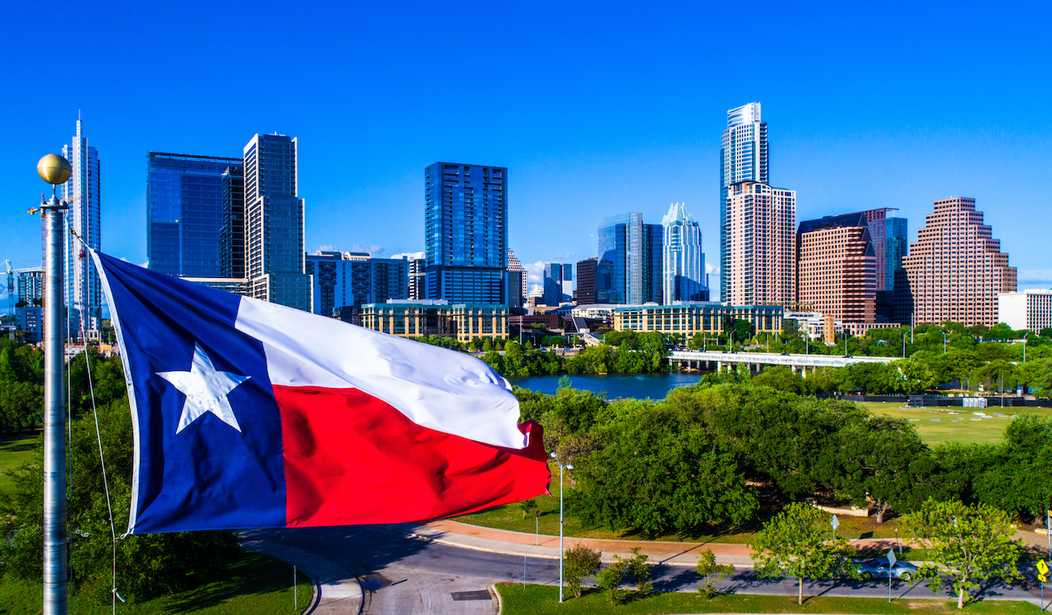The cure for communism, apparently, is Texas.
The 1980s soap opera Dallas hastened the downfall of communist Romania. Dallas was one of the few Western shows dictator Nicolae Ceau?escu allowed to be shown, believing the adventures of the Ewing family would illustrate how the decadence of capitalism. The plan backfired. Instead, Romanians got to see every week how much better the free market was to communism – and they overthrew Nicolae Ceau?escu in 1989.
Something similar is happening at home now, with a creative bit of Texas law proving the antidote to trial lawyers who want to run roughshod over the free market.
The term “ambulance chaser” has been in the public lexicon for decades: deceptive, exploitive trial lawyers who seduce vulnerable individuals to their own benefit, and gauge the system. Beloved by no one but those it profits, our nation’s current tort system allows bad actors to abuse the law and treat people like poker chips. Health care, divorce, mergers & acquisitions – virtually every aspect of modern life has been warped by greedy, parasitic lawyers glomming onto it and bleeding it dry.
In terms of corporate litigation, while some companies are rightfully held accountable for negligence issues, many companies suffer under a system that allow plaintiffs’ attorneys to exaggerate liabilities with oversized damage claims. Consumer protections is one thing, running the pillars of our economy out of business is another.
A couple years ago, the Texas legislature came up with a plan to outwit the trial lawyers.
It’s called the Texas Two-Step (no, not that one). Permitted under the Texas Business Organizations Code, companies under attack from reckless trial lawyers can protect themselves from inflated, short-term litigation risks. The company can split itself into two entities, designating one – with limited assets – for all liabilities for tort victims while insulating the larger entity and most of their assets.
Recommended
Since this smaller, spinoff company doesn’t have enough assets of its own to cover the liabilities, it can then file for bankruptcy in states that are nicer to corporate bankruptcy cases – sidestepping the trial lawyers and ensuring outrageous claims don’t drive them under.
The highest-profile example of the Texas Two-step is Johnson & Johnson’s 2021 merger. Facing 38,000 pending cases alleging carcinogenic effect of talc in its famous baby powder. J&J separated from its consumer health business and split into two entities – one a publicly traded company (Johnson & Johnson Consumer Health) and one a subsidiary incorporated in the Lone Star State (LTL Management LLC). J&J then transferred all of its liabilities regarding talc to LTL.
This immediately halted all baby powder-related cases by turning them over to bankruptcy courts, not civil courts. Financial analysts and investors praised the move, reactions that demonstrated the Texas Two-Step tactic can provide breathing room for companies to dodge the predatory litigation efforts of some trial lawyers.
Companies shouldn’t have to pull this kind of fancy footwork, but it’s good that they can until some kind of national tort reform legislation can address trial lawyer overreaches. While hopeless now, expect Congress to change partners in November.
More recently, Minnesota based 3M decided to forego the more controversial Texas Two Step and instead rightfully declared Chapter 11 on a subsidiary that has been the target of trial lawyer attacks for claims about their military earplugs. These earplugs were approved by the federal government for use and newer models of these earplugs are still used by our servicemen but that hasn’t stopped the plaintiffs’ bar from bringing more than 235,000 legal claims. The announcement was paired with a $1 billion trust commitment to military servicemen and women who have been impacted, in the hopes that the money goes to them instead of legal fees. The company also committed an additional $240 million to fund projected related case expenses.
Now is the time to recognize trial lawyers have abused the true innovators of our country and the legal system that’s supposed to protect them. If our legal system is twisted from protecting commerce to attacking it, our national economy won’t survive long. We need sensible, nationwide tort reform as soon as possible.

























Join the conversation as a VIP Member